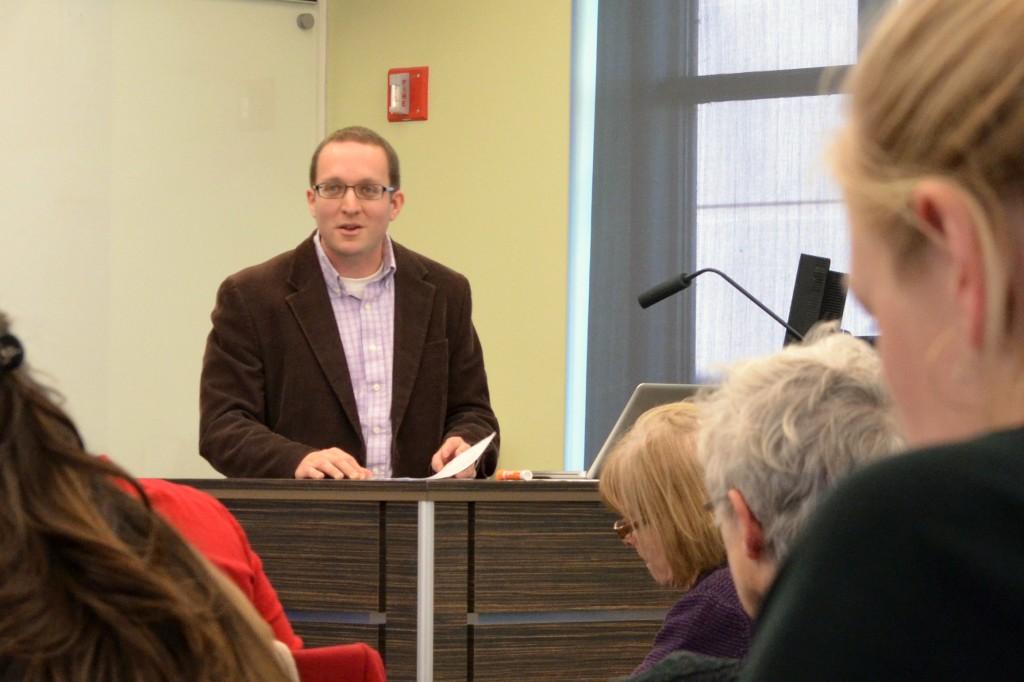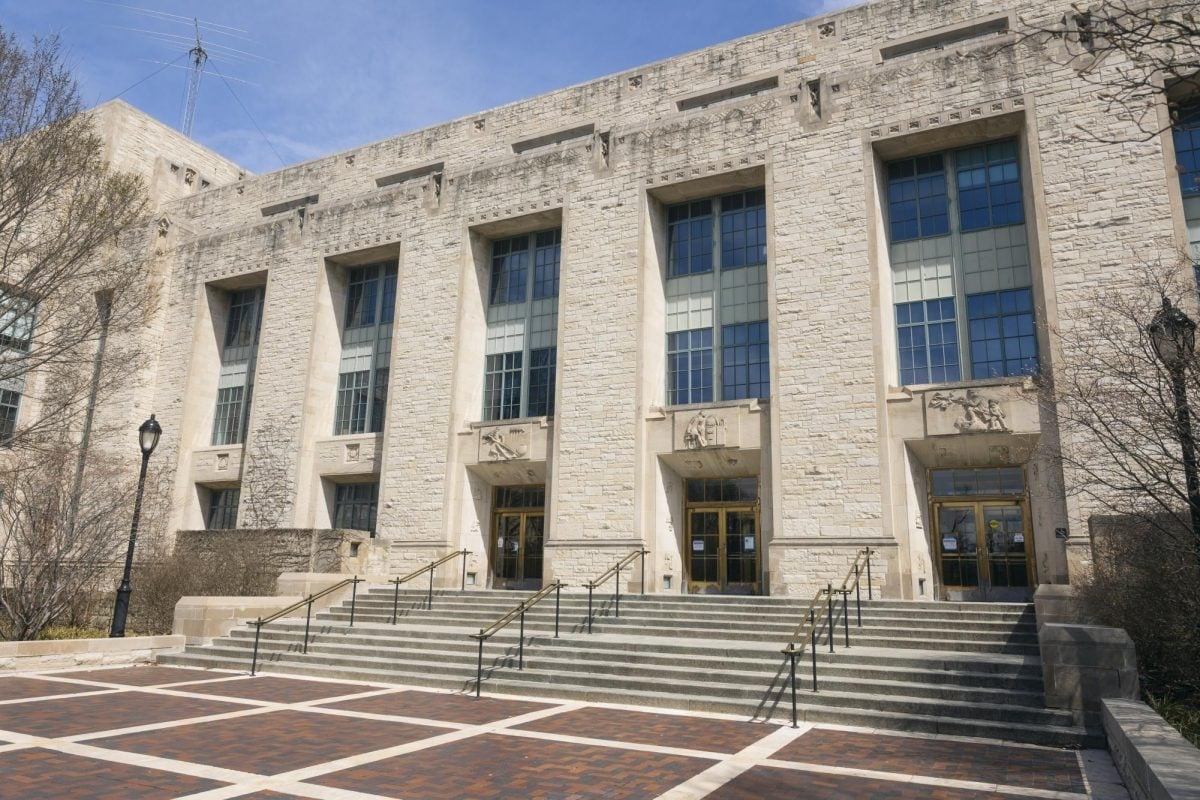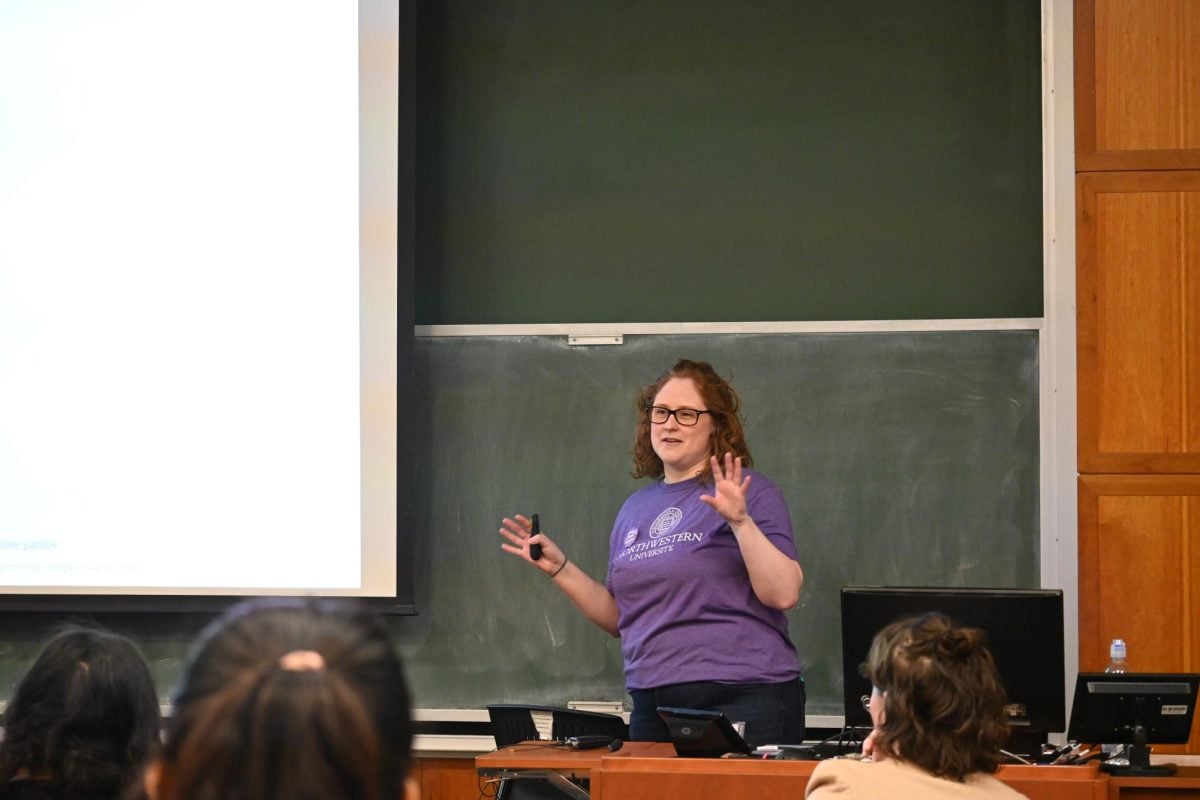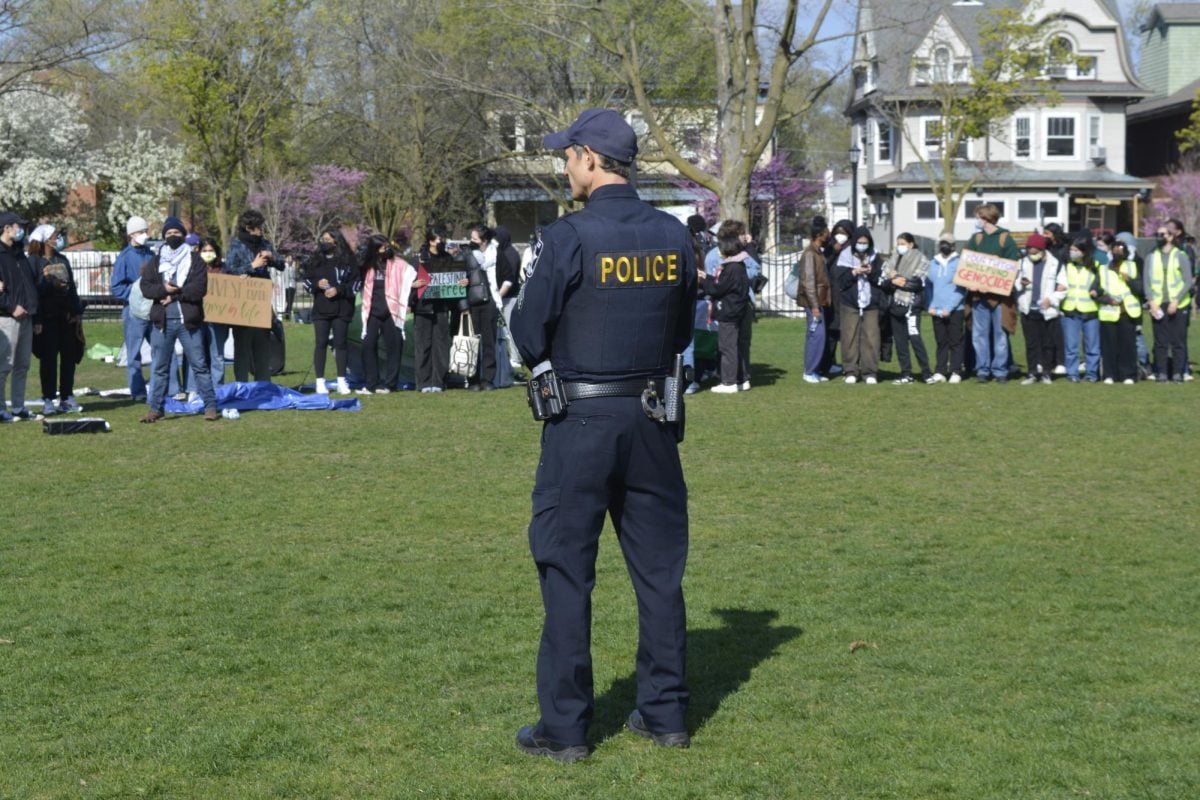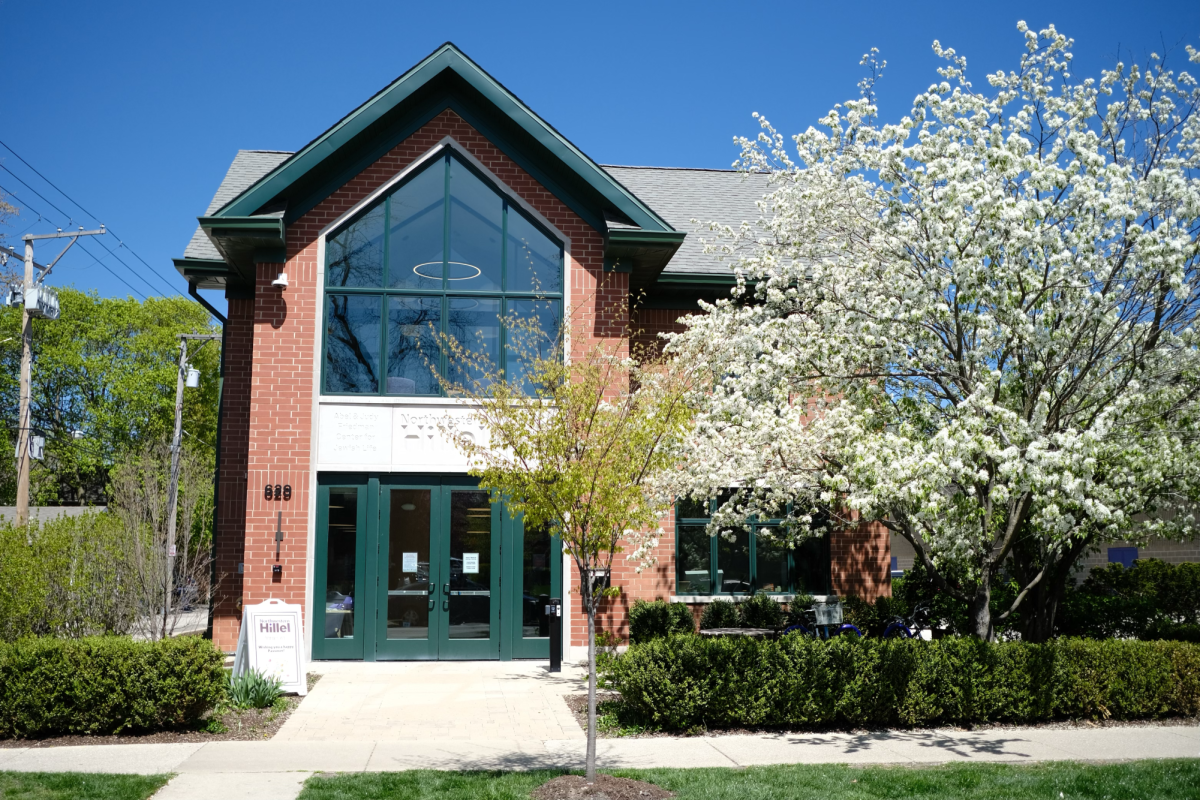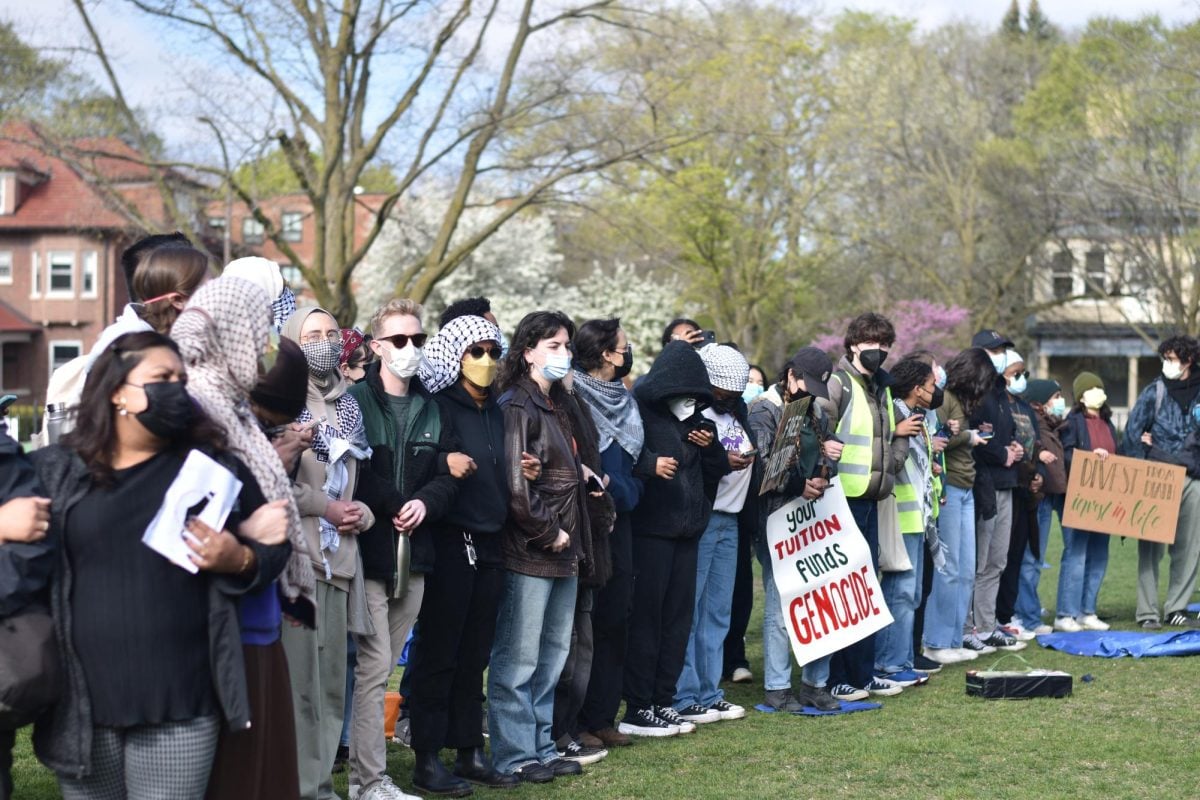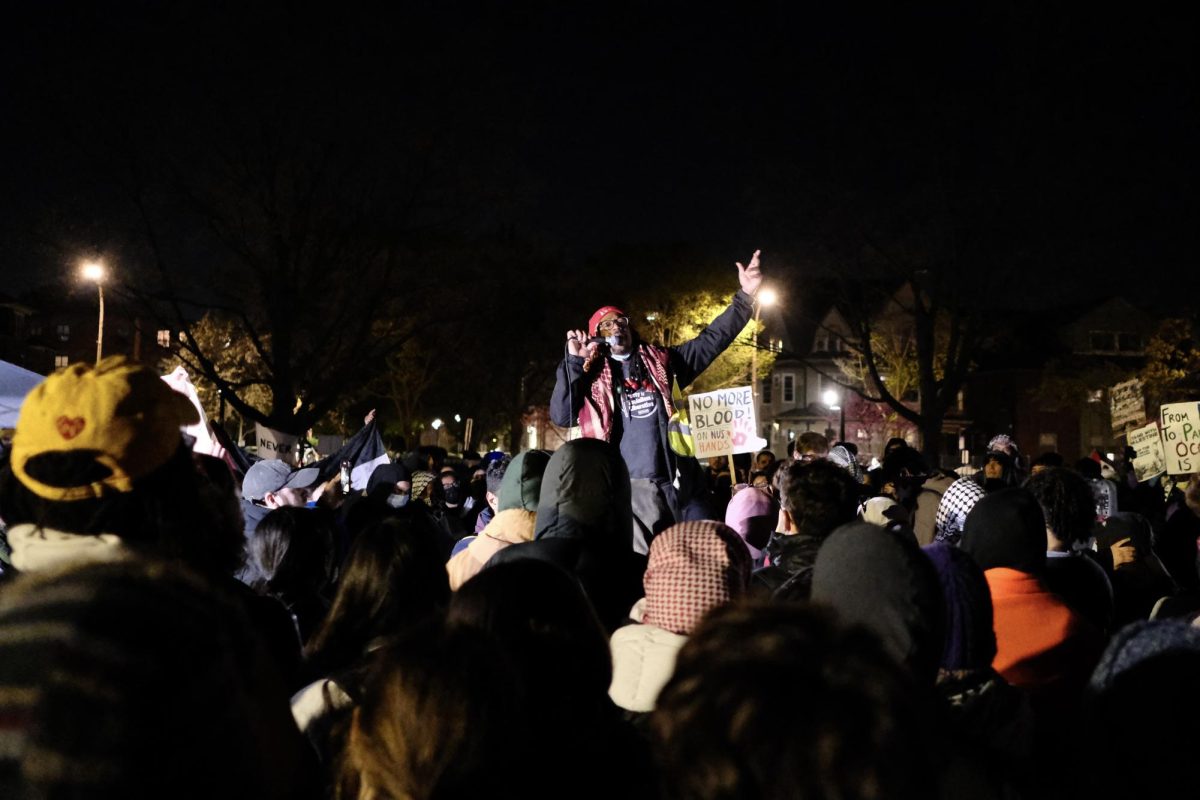In a discussion panel analyzing last week’s presidential election, Northwestern professors agreed the adaptability of the Democratic Party to changing demographics, campaigning techniques and social attitudes tipped votes in the party’s favor.
The Institute for Policy Research sponsored Monday’s forum, “Reflections on the 2012 Election,” during which participants analyzed election results.
The forum attracted an audience of more than 50 IPR faculty members and graduate students to Annenberg Hall. IPR spokeswoman Patricia Reese said the audience consisted of students and faculty from a variety of fields, including political science, anthropology, sociology and economics.
“It was a pretty diverse crowd,” she said.
Tove Eliasson, a graduate student visiting NU from Sweden, said she attended the forum because she is interested in American politics.
“I think it’s interesting to listen to real political scientists and not journalists,” she said.
IPR fellow and political science Prof. James Druckman moderated the event, which featured a panel of three other IPR professors. Druckman stressed the importance of particular swing states in this year’s election.
He explained that if 300,000 votes, or one-tenth the electorate, had voted differently in four key states — Florida, Ohio, Virginia and New Hampshire — former Massachusetts Gov. Mitt Romney could have been elected president.
“This was a very close election,” Druckman said.
However, panelist and political science Prof. Benjamin Page said increasing populations of minorities that overwhelmingly voted for President Barack Obama on Nov. 6 are tipping the demographic composition of the country in the Democrats’ favor.
“If you add up minorities of all sorts, Republicans have lots of reasons to worry,” he said.
Panelist and sociology Prof. Monica Prasad said exit poll data from The New York Times indicates voters are split along racial lines. She showed pie charts demonstrating an overwhelming majority of non-whites voted for Obama, while the majority of whites voted for Romney.
“This election shows that we have not gotten over our racial divisions at all,” she said.
Page said another major problem facing Republicans and what may be “the biggest single story of the election” was the influence of the ultra-conservative Tea Party.
“The Tea Party crashed and burned in a major way,” he said. “I think the Tea Party had a whole lot to do with Republican losses of the presidency and the Senate.”
The Tea Party has driven the social policies of the Republican Party too far to the right to win national elections, he said.
“Even though moderate Mitt came out looking pretty good to most voters, he was still stuck with having opposed the DREAM Act, having said some bizarre things about (women’s issues),” he said.
Panelist and political science Prof. Daniel Galvin echoed this sentiment. He said that while he believes parties adapt to the changing electorate, the nominating process impedes change within the parties.
The forum also addressed the campaigns’ different approaches for influencing voter turnout — persuasion versus mobilization.
“It might be very hard now, given the vast amount of media choice that people have, to directly be able to persuade them,” Druckman said. “We might see more effort toward mobilization, and it seems to me at least in this election that that may have been one of the keys to Obama’s victory.”

